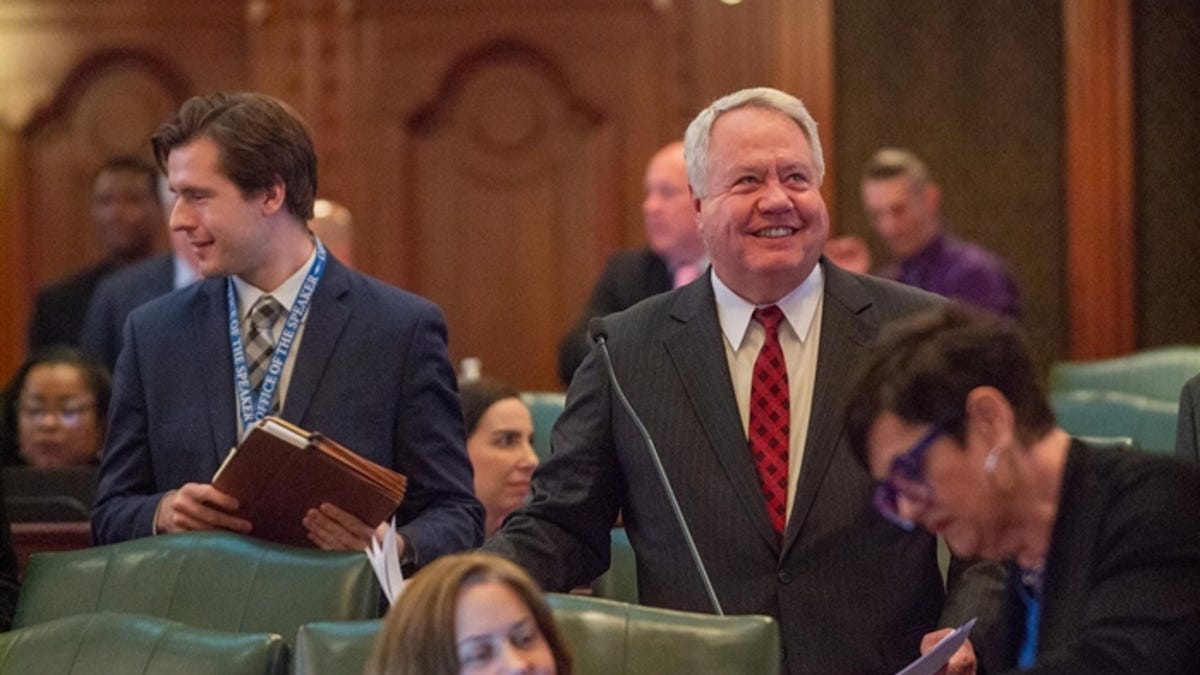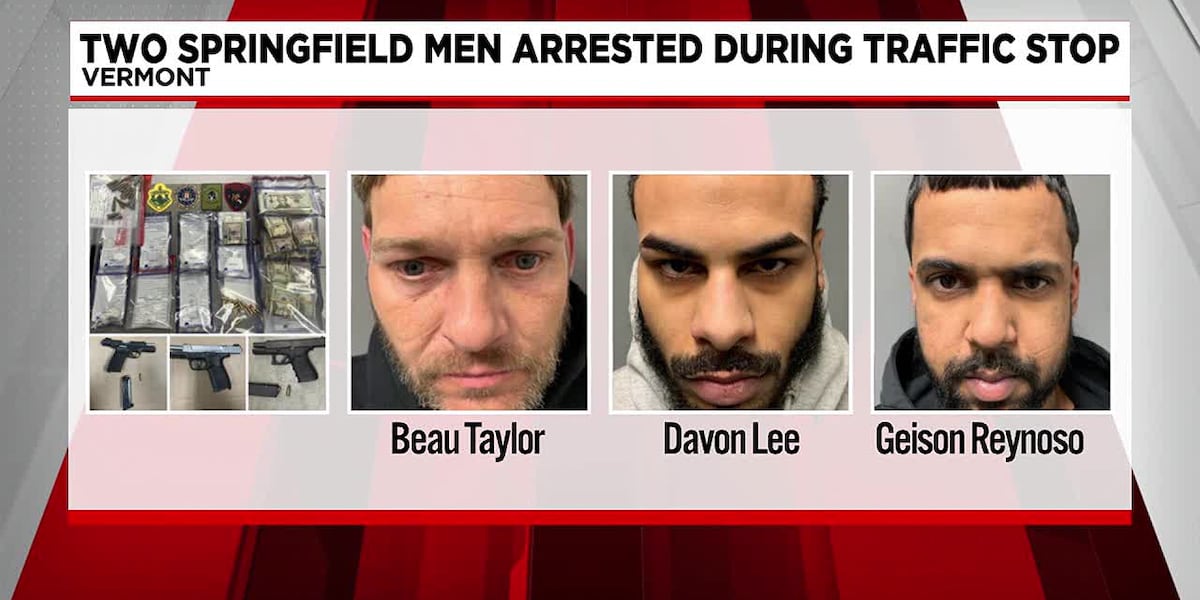Illinois
Illinois secretary of state celebrates National Donate Life Month

SPRINGFIELD (WGEM) – April is National Donate Life Month. That is why Illinois Secretary of State Alexi Giannoulias joined organ recipients and family members of donors to call on everyone to sign up to donate life.
Giannoulias, who oversees Illinois’ organ and tissue donor registry as part of his duties as secretary of state, said 6 million Illinoisans are signed up to be organ donors.
“We must and we can do better,” he said. “We have to raise awareness. This is our chance to literally save lives.”
There are several places people can sign up including online, when they get their Illinois driver’s license and, a recent addition, applying for a hunting license in the state.
According to the Health Resources and Services Administration, an organ donor can save eight lives and enhance up to 75.
Giannoulias said there are currently nearly 4,000 Illinoisans awaiting an organ transplant. Almost 300 of them die waiting annually.
Nikki Love is one of the lucky ones. In 2015, she got a new kidney and pancreas.
“I’m here today because someone said yes,” she said. “Someone said yes, I will give organs, tissues, whatever is need if anything were to happen to them so I’m just so grateful and thankful that they said yes.”
Giannoulias said people like Love are why he takes overseeing the state’s organ and tissue donor registry so seriously.
“We spend an enormous amount, our team does, of talking to folks, going to schools, doing everything we can. We’re going to continue to do it, we’re going to aggressively do it and it’s a team effort,” he said.
“We have to opportunity to save lives, to save families, so anything and everything we can do to continue to raise awareness, we will continue to do,” Giannoulias said.
Copyright 2024 WGEM. All rights reserved.

Illinois
Is a tax on services in Illinois' future? Pritzker no longer rules it out.

Gov. J.B. Pritzker unexpectedly moved away last week from his longstanding opposition to taxing services, saying he didn’t want to start taking ideas off the table as lawmakers search for ways to fund and reform the Chicago region’s mass transit system.
As you may know, the Chicago area’s mass transit agencies are facing a $730 million “fiscal cliff” in 2026. The federal government’s COVID-era subsidies will expire that year. While ridership has declined as service worsens, operating costs have increased and average fare prices have fallen.
According to a report last year from the Chicago Metropolitan Agency for Planning, imposing a service tax could be part of the solution. The CMAP report said adding a service tax to the state’s existing 6.25% state tax rate could generate $1.1 to $1.9 billion in 2026. Some legislators are proposing a $1.5 billion annual funding increase for transit, as part of a consolidation effort.
So, my associate Isabel Miller (who contributed to this column) asked Pritzker during an unrelated media event if he wanted to take any state taxes off the table before the talks heat up, including the service tax.
“I have never been in favor of that before,” Pritzker said of the service tax. He has indeed opposed the tax all the way back to his first 2018 gubernatorial campaign, often calling it regressive.
“There may need to be a source of revenue here,” Pritzker said, “but that’s not something that I have favored in the past.”
As far as specifically ruling out a service tax, however, the governor said: “I really don’t want to start saying, ‘We’re not going to do this, we’re not going to do that.’ At this point, there are just so many pieces of this that we have to look at before we’re going to pay for what’s necessary here as we come off of support from the federal government and making sure we’re restoring transit services.”
Some legislative Democrats pushing transit agency consolidation and reform welcomed the news of the governor’s new openness to a service tax, which seems to be evidence the governor is serious about finding a fix.
“I appreciate the governor being open to it, and I appreciate him recognizing this is a complicated matter,” Rep. Eva-Dina Delgado, D-Chicago, told me. Delgado introduced House Bill 5828 last week to provide the systems an annual $1.5 billion state appropriation once the mass transit system is consolidated.
Rep. Kam Buckner, D-Chicago, whose House Bill 5823 would create a consolidated transit agency, told me he’s also opposed a service tax in the past. But Buckner said he is open to it now, and he appreciates the governor is keeping an open mind.
Change must come for mass transit
Pritzker also reiterated last week he’s not yet endorsing any particular mass transit reform proposal but insisted “change is going to have to come.”
“We just know that we’re going to have to upgrade service, make sure that we’re dealing with the transit funding challenge that’s coming up,” Pritzker said. “I hope to see several proposals so that we can consider what direction to take.”
That change in direction will be a complex endeavor, the governor said.
“We’ve got to look at cuts that need to be made, along with, you know, are there changes in fares for certain types of riders that need to be made,” Pritzker said.
A Pritzker spokesperson later explained when the governor said “cuts,” he meant efficiencies to save money, like consolidating the regional transit system but not service cuts.
Most transit agencies hotly oppose consolidation, including the Chicago Transit Authority.
A spokesperson for the Illinois Chamber told me the organization hopes the governor remains ambivalent about a service tax.
“From our position, taxing Illinois’ service businesses — especially our smallest businesses — to close a budget gap is a non-starter. The tax would negatively impact the smallest of businesses: service-based small businesses and startups — especially businesses in counties that border other states as customers can save just by crossing the state line,” the Chamber spokesperson said.
One issue with a service tax is implementing it would take time. Many of the businesses that would be covered are not currently set up to pay sales taxes, for example. The Chamber predicted it could take “several years” to implement a service tax, so it won’t solve “short-term gaps.”
“As the voice of Illinois business, we would welcome sitting down with the governor’s team to discuss pragmatic ways to address the budget gap, but taxing services is not one of them,” the Chamber spokesperson said.
Rich Miller also publishes Capitol Fax, a daily political newsletter, and CapitolFax.com.
The Sun-Times welcomes letters to the editor and op-eds. See our guidelines.
Illinois
New bill changes Illinois election slate rules

ILLINOIS (WIFR) – Six months away from November, Illinois lawmakers change election laws that prevent candidates from being slated in.
The bill, originally presented as a child welfare bill, declares only candidates who run in the primary election can be on the general election ballot. Illinois State Board of Elections public information office Matt Dietrich says the burden will now be on each political party to make sure someone runs in each state-wide primary race.
“They would not have a chance then to slate a candidate after the primary to fill that vacancy and nomination,” Dietrich clarifies.
Tensions along party lines rose after Governor J.B. Pritzker signed the bill into law. 35th District State Senator Dave Syverson sees this bill as an abuse of power by the Democrats. He says the bill was signed at historic speed without any public input. He believes it is wrong to pass a bill that would change election laws this close to the general election.
“For the ruling party just to take choice away from the public is wrong … it shouldn’t be about Chicago style political muscle, it should be about an open process,” Syverson says.
On the other side of the argument, State Representative Dave Vella hopes the bill will return power to voters and independent candidates. He says for too long, many slated candidates ran without connecting with their constituents.
“I think I’m hoping that this will force the candidates to go out and talk to the voters,” Vella says. “And forces the candidates who don’t want to go through that process, to do it and you want that right, you want people to put the work in if they are going to represent you.”
The bill also places three advisory questions onto the November ballot for citizens to consider pertaining to the security of election workers, invitro fertilization and tax increases on incomes of more than $1,000,000. For certain offices, including state constitutional officers and judges, it pushes back the filing period by four weeks.
Copyright 2024 WIFR. All rights reserved.
Illinois
Push to curb domestic violence in Illinois

SPRINGFIELD (WGEM) – Illinois lawmakers are renewing their focus on curbing domestic violence in the state.
The renewed focus comes after what police are calling a murder-suicide last week in Villa Park involving a man on pretrial release after a domestic violence arrest.
Police found Winston Elguezabal and his wife Julie dead on April 26 following an apparent murder-suicide. Winston Elguezabal was on pretrial release after a recent domestic violence arrest.
Under the Pretrial Fairness Act portion of the SAFE-T Act, people accused of domestic violence are presumed to be released while awaiting trial. They can be held but the prosecution is required to file a motion and prove they’re too dangerous to be on the streets.
State Senate Minority Leader John Curran, R-Downers Grove, wants to change that.
“We want to get serious about domestic violence, domestic abusers, those who are causing bodily harm to women and children, the victims of domestic violence, we need to flip that presumption,” he said. “My legislation is very simple in nature, the presumption will be flipped.”
He will introduce a bill requiring the accused to file a petition and prove they are not too dangerous to be released.
Democrats are pushing for another bill called “Karina’s Bill.” They believe it’s too easy for people accused of domestic violence to access firearms.
“I would ask my colleagues who want us to work on all of these items to think about the victims of domestic violence and readily availability of firearms to the perpetrator, and the protections are not there yet. We need to give law enforcement the tools to seize those weapons,” said state Rep. Diane Blair-Sherlock, D-Villa Park.
“Karina’s Bill” would require police seize someone’s weapons within 96 hours when they’re giving a court order to surrender their Firearm Owners Identification (FOID) card. Right now, they can turn their guns over to another FOID card holder including someone in the same house.
Curran said he supports the underlying idea of getting guns out of the hands of accused domestic abusers. He cautions though that ongoing negotiations between lawmakers, advocates and law enforcement have to get the policy details right since executing search warrants can be very dangerous.
Copyright 2024 WGEM. All rights reserved.
-

 News1 week ago
News1 week agoLarry Webb’s deathbed confession solves 2000 cold case murder of Susan and Natasha Carter, 10, whose remains were found hours after he died
-

 News1 week ago
News1 week agoFirst cargo ship passes through new channel since Baltimore bridge collapse
-

 World1 week ago
World1 week agoHaiti Prime Minister Ariel Henry resigns, transitional council takes power
-

 World1 week ago
World1 week agoSpanish PM Pedro Sanchez suspends public duties to 'reflect'
-

 World1 week ago
World1 week agoUS secretly sent long-range ATACMS weapons to Ukraine
-

 Movie Reviews1 week ago
Movie Reviews1 week agoHumane (2024) – Movie Review
-

 News1 week ago
News1 week agoAmerican Airlines passenger alleges discrimination over use of first-class restroom
-

 Education1 week ago
Education1 week agoVideo: Johnson Condemns Pro-Palestinian Protests at Columbia University

















